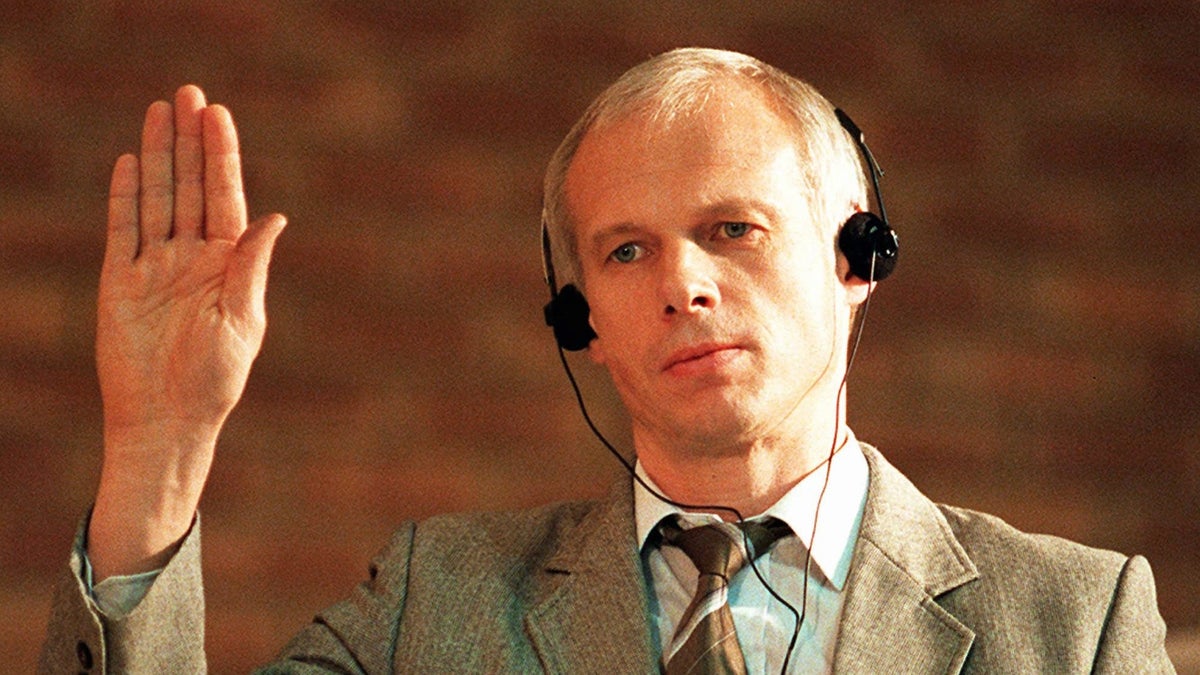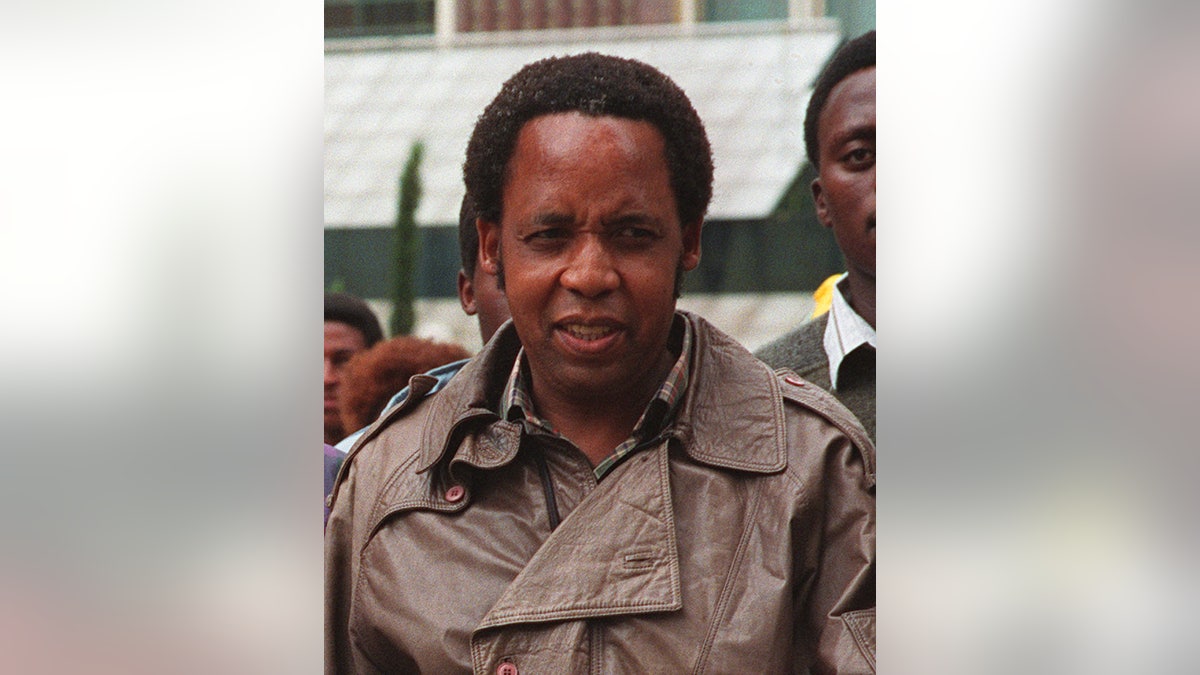
Janusz Walus in 1997. (AP Photo/Cobus Bodenstein, File)
A jailed assassin who killed a prominent anti-apartheid leader in South Africa in 1993 won a bid for parole on Thursday, igniting bitter memories of racial unrest during white minority rule as well as fresh scrutiny of the balance between punishment and leniency for crimes committed during that era.
A Pretoria judge ordered parole within two weeks for Polish immigrant Janusz Walus, whose killing of Chris Hani stirred fears of all-out racial conflict at a time when delicate negotiations for a democratic transition were underway. Hani was head of the South African Communist Party and of the military wing of the African National Congress, the main anti-apartheid movement that later became South Africa's ruling party.

Chris Hani in 1991. (AP Photo, File)
While Nelson Mandela and other leaders at the time tamped down the anger roiling the country, and euphoria ran high after the first all-race elections in 1994, the country still grapples with its troubled legacy. In recent months, there have been more calls for prosecutions of figures from the apartheid-era government, reflecting a belief that the drive for racial reconciliation let some perpetrators off the hook and failed to improve the lives of many in the black majority.
Some of those emotional wounds reopened as news spread that 60-year-old Walus, who has served 23 years of a life sentence, would be freed on parole this month.
Hani's wife, Limpho Hani, harshly criticized the white judge who heard a legal appeal from Walus' lawyer and overruled the South African justice ministry's refusal to grant parole.
"She is nothing but a racist," Hani's wife said in an interview with South Africa's Radio 702. "To her, black lives don't matter. She hardly made mention of my husband's murder in her judgment."
Limpho Hani also questioned South African courts, saying, "the judiciary wants to rule this country through the back door because they undermine executive decisions."
Judge Janse van Nieuwenhuizen referred in her ruling to South African legal guidelines on parole, including the fact that it is based on a "good prognosis" for rehabilitation, is subject to supervision and does not imply that a criminal has been acquitted.
Nieuwenhuizen noted that Walus had tried in vain to meet Hani's family and apologize to them.
"Their stance is simply that they will not forgive the applicant," the judge wrote.
Walus' lawyer, Julian Knight, said the justice ministry's decision to refuse parole was based on the "whims of politics," not the law.
Clive Derby-Lewis, a fellow conspirator of Walus who also got a life sentence, was released on medical parole last year after more than two decades in prison.
Walus said after his arrest that he and Derby-Lewis, a proponent of white minority rule, hoped the assassination would plunge South Africa into chaos ahead of the historic 1994 elections. The murder sparked some rioting, but the elections proceeded.
After white rule ended with those elections, the Truth and Reconciliation Commission investigated past atrocities and granted amnesty to some accused perpetrators. Walus and Derby-Lewis testified before the panel but were refused amnesty.
In a statement Thursday, the ANC said the parole order "is a "travesty of justice."
The ruling party said Walus almost set off a civil war by killing Hani, and that the immigrant should be immediately deported on his release.
